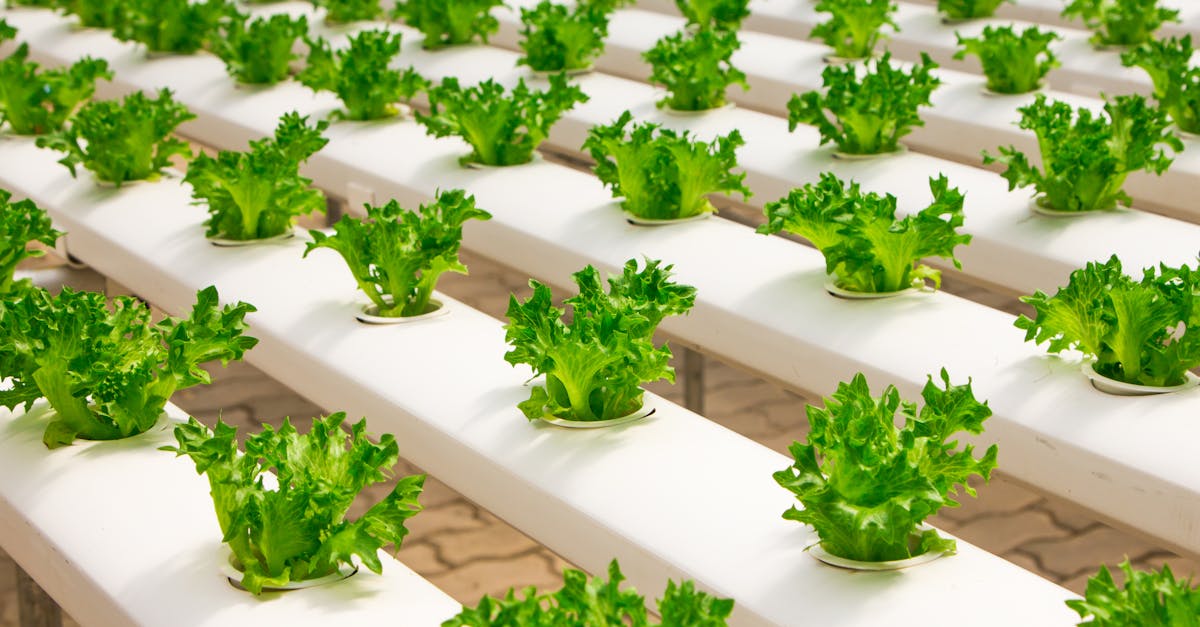
Introduction
In a world where culinary trends and dietary habits evolve rapidly, understanding the future food landscape becomes essential. As our global population grows, so does the demand for sustainable, nutritious, and accessible food options. We're beginning to see groundbreaking innovations and shifts in agriculture, food production, and consumption patterns. From lab-grown meats to algae-based diets, the future of food promises to transform not only what we eat but how we live. As these changes take shape, we must explore the crucial roles of technology, culture, and environmental stewardship. This exploration leads us into understanding how we can savor this promising future.
Technological Innovations in Food Production
The advancements in food technology are poised to revolutionize how we produce and consume food. Precision agriculture, powered by AI and IoT, helps optimize crop yields while minimizing resource use. Vertical farming allows crops to be cultivated in urban environments, reducing transportation costs and environmental impact. Solving challenges like global food security involves embracing cell-based meat technology, which offers meat production without raising livestock. Innovations such as CRISPR gene editing enable scientists to create resilient crops, capable of thriving in various climates. As biotechnology progresses, food production becomes efficient, sustainable, and adaptable.
A Shift Towards Plant-Based Diets
Over the past decade, plant-based diets have gained significant traction among consumers looking for health and environmental benefits. As understanding grows around the impact of meat production on the environment, more people are choosing plant-forward diets. Companies like Beyond Meat and Impossible Foods have entered the market with plant-based alternatives that mimic the taste and texture of traditional meats. These products reduce pressure on the environment by lowering greenhouse gas emissions and land use. With the innovation in plant-based cuisine, we see an increased acceptance and integration into mainstream diets.
The Rise of Sustainable Packaging
As society becomes increasingly aware of the environmental impacts of packaging waste, there's a strong push toward sustainable solutions. Biodegradable and recyclable materials are being used to replace traditional plastics, leading to reductions in landfill waste and ocean pollution. Edible packaging, made from natural materials like seaweed, offers a zero-waste alternative. Food companies are also exploring reusables and packaging-free products in response to consumer demand. The focus is shifting towards packaging innovations that ensure longevity and reduce connections between consumption and environmental harm.
Algae-Based Diets: A Nutritious Future
Algae, though often underestimated, holds the potential to address several nutritional challenges. Rich in proteins, vitamins, and omega-3 fatty acids, algae is a superfood that contributes to a balanced diet. With its rapid growth and low resource requirements, algae cultivation is environmentally friendly and highly sustainable. Companies are exploring its potential beyond health supplements to include algae-based snacks, beverages, and even staple foods like pasta and bread. As a highly adaptable and nutritious alternative, algae stands as a crucial component in future dietary plans.
The Influence of Cultural Culinary Traditions
Cultural diversification and globalization have redefined food experiences, paving the way for unique and exciting culinary trends. As the world becomes more interconnected, people gain exposure to diverse flavors, cooking techniques, and indigenous ingredients. This cross-cultural exchange leads to fusion cuisines, which blend the best elements of different traditions. As we move forward, chefs and food innovators will continue drawing inspiration from global cultures to create new, exciting dishes, ensuring diversity in our food landscape. The melding of traditions enriches our collective culinary experience and enhances food appreciation.
Food Security and Accessibility Challenges
While advancements in technology and shifts in food production pave the way for a promising future, the issue of global food security remains a pressing challenge. Many regions still face significant barriers to accessing nutritious and affordable food. Addressing inequalities requires collaborative efforts between governments, NGOs, and private sectors. Sustainable agricultural projects, local farming initiatives, and urban gardening programs can help enhance food access. Ensuring equitable distribution and availability of future food innovations is vital for overcoming existing food security challenges.
Impact of Climate Change on Food Systems
Climate change significantly impacts global food production, posing challenges to traditional agriculture. As weather patterns shift, crops become more vulnerable to droughts, floods, and pest infestations. Resilience-building strategies, such as adopting drought-resistant crop varieties and resilient farming practices, become essential. Efforts to mitigate climate change by reducing carbon emissions from agriculture can help lessen its impact on food systems. Moreover, understanding and managing food waste reduce strain on agricultural resources and contribute to environmental preservation. Planning for climate adaptability ensures food systems remain robust in the face of change.
Navigating the Ethical Considerations
With every innovative step forward in the food landscape, ethical considerations come to the forefront. Questions arise about the treatment of lab-grown meat, implications of genetically modified organisms, and the ethics of consumption habits. Addressing these concerns involves balancing technological advancements with cultural sensibilities and ethical frameworks. Transparent labeling standards, education around new food technologies, and consumer empowerment through informed choices are crucial. Navigating these ethical challenges will play a vital role in fostering trust and acceptance of future food developments.
Summary
The future of food presents an exciting yet complex landscape brimming with innovations and challenges. As we savor this potential, attention must be paid to sustainable practices, embracing technology, and integrating diverse cultural influences. Collaboration across various sectors is vital to overcoming hurdles related to food security, climate change, and ethical considerations. Acknowledging innovation’s profound impact while addressing its implications is crucial for a balanced evolution of the food industry. By adopting a forward-thinking approach, we ensure our nutritional future is abundant, equitable, and sustainable for generations to come.